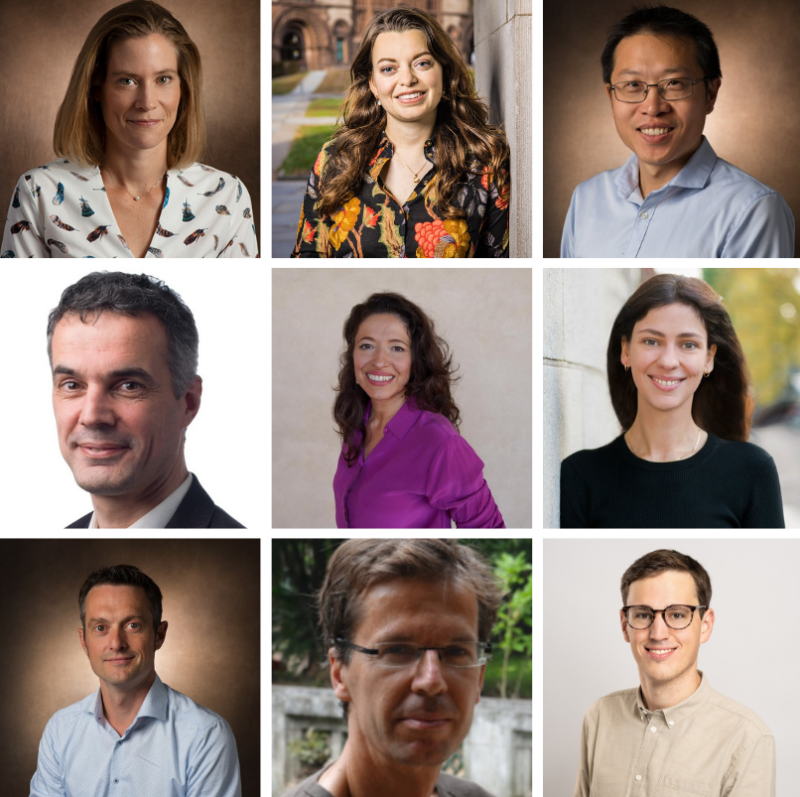NWO grants six research projects by Tinbergen Institute fellows
Six research projects by Tinbergen Institute fellows from Erasmus University Rotterdam, the University of Amsterdam, and Vrije Universiteit Amsterdam have been awarded funding by the NWO in the 2024 SGW Open Competition M round.

This competition gives researchers the opportunity to conduct research on a topic of their own choice, without thematic preconditions.
Projects in the M category have a maximum duration of 5 years and a maximum funding amount of EUR 400,000 per project.
Below are summaries of granted research projects carried out by Tinbergen Institute fellows:
Hormones at Work: How Menopause affects Women’s Labor Market Outcomes
Anne Gielen (Erasmus University Rotterdam) and Esmée Zwiers (University of Amsterdam)
The increased proportion of middle-aged working women over time implies that more employed women experience menopause during their professional careers. While this major biological transition is often accompanied by substantial physical and mental health problems, the causal impact of these symptoms on women’s careers is yet unknown. This project innovates by identifying the causal impact of menopause on women's labor market participation and earnings. Furthermore, it examines how this effect is influenced by inequality in access to care, and the role of female-friendly workplace provisions. This project’s insights will contribute to improving women’s careers and gender equality in the workplace.
Beyond Gender: The Impact of Intersectional Stereotypes on Labour Market Evaluations
Klarita Gërxhani (Vrije Universiteit Amsterdam) and Katharina Brütt (Vrije Universiteit Amsterdam)
The labour market significantly contributes to inequality, with women generally earning less and facing more obstacles in career progression. Our research seeks to better understand how stereotypes can contribute to these disparities. We will study how stereotypes are formed when individuals are characterised by several intersecting social identities, such as gender, race and socio-economic status. For instance, stereotypes about a woman’s competence can be shaped by her gender but also by her race and socio-economic status. We will use both theoretical and empirical methods to analyse how these intersecting identities influence stereotype formation and gender differences in labour market outcomes.
The Best of both Worlds: Model Specification and Inference in Hybrid Machine Learning Econometric Models
André Lucas (Vrije Universiteit Amsterdam)
New techniques like deep learning and large language models (LLMs) are increasingly applied in everyday life and policy contexts. Quantifying the uncertainty surrounding predictions based on these models remains an underexplored field. This project pushes the frontier on three fronts by:
- constructing hybrid models exploiting the best side of econometric and machine learning models and applying them to study the spread of fine particulate matter.
- constructing bands of uncertainty for the above models;
- constructing frames of uncertainty for models for unstructured data like text and picture predictions and studying the quality of bank's climate risk reporting.
When should Ethically Contested Markets be allowed?
Theo Offerman (University of Amsterdam) and Andreas Ziegler (Vrije Universiteit Amsterdam)
Many societal problems are essentially market design problems. Whereas current research focuses on efficiency, it is imperative to include people’s fairness views. We aim to understand why people oppose the solutions proposed by classical economists. This will help us to search for modified designs that find more support. We will address markets in which sellers engage in dynamic pricing and markets that generate negative external effects. We will also consider the non-existence of market for challenge trials and the market for organ donations, in which we aim to find out whether there are modified designs that people would consider desirable.
Enduring Empire: measuring Early Dutch Colonialism’s Lasting Impact in Indonesia
Maarten Bosker (Erasmus University Rotterdam) and Lodewijk Petram (Huygens Instituut)
This project explores how Dutch colonial rule in Java during the 17th and 18th centuries continues to shape the region’s development. By comparing areas with different levels of influence from the Dutch East India Company (VOC), we uncover how factors like population, land use, and infrastructure impact present-day society and economy. Our approach combines advanced data analysis and historical research, using newly digitized VOC archives and cutting-edge technology to analyze historical maps. The findings, shared through open-access publications, an interactive website, and a public workshop, aim to offer fresh insights into colonial history’s lasting effects on Indonesia.
Bringing hidden Patterns to Light: Uncovering hidden Network Connections in Complex Data
Wendun Wang (Erasmus University Rotterdam)
Countries, firms, and individual persons (units) are interconnected, such that the behaviour and the performance of an individual are often influenced by those of others. These connections also vary over time or regimes due to various shocks, e.g., Brexit, the Corona pandemic, policy implementations, and technology change. This research project will create innovative tools to model and uncover the varying connections of these units in a new but increasing popular type of data structure, namely multi-dimensional data.
Read more about the Open Competition SSH | NWO and granted projects.